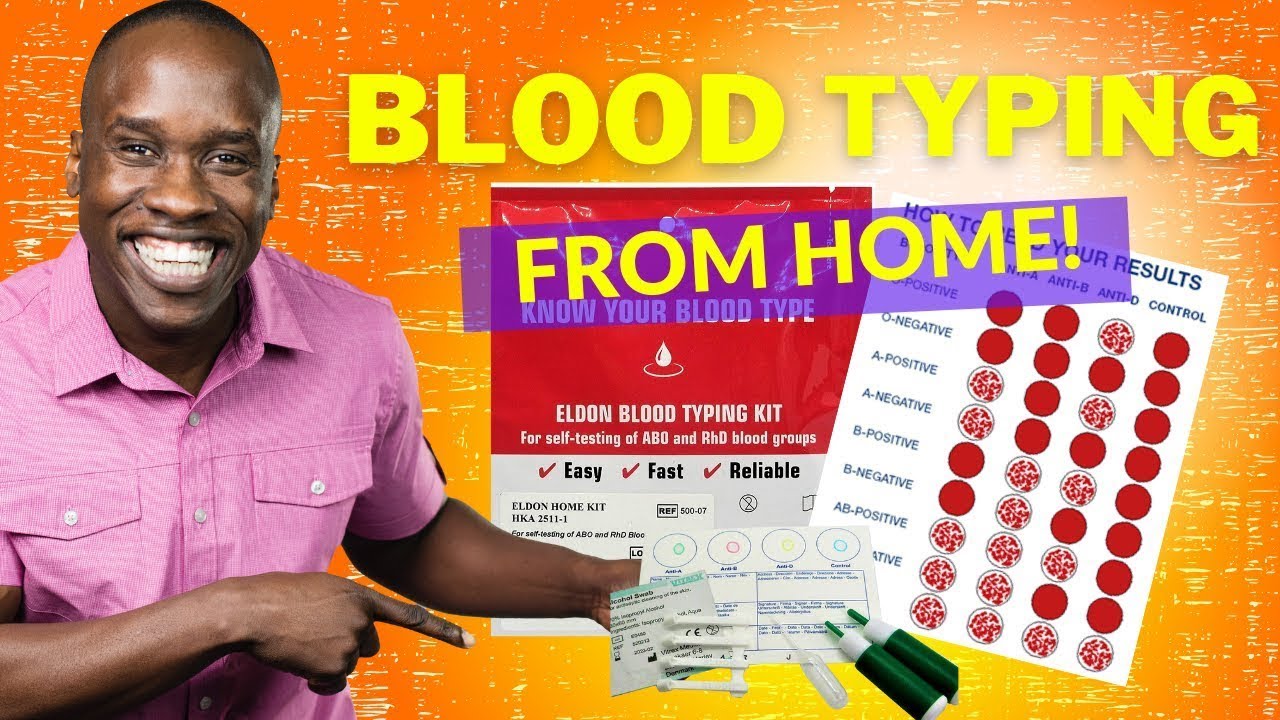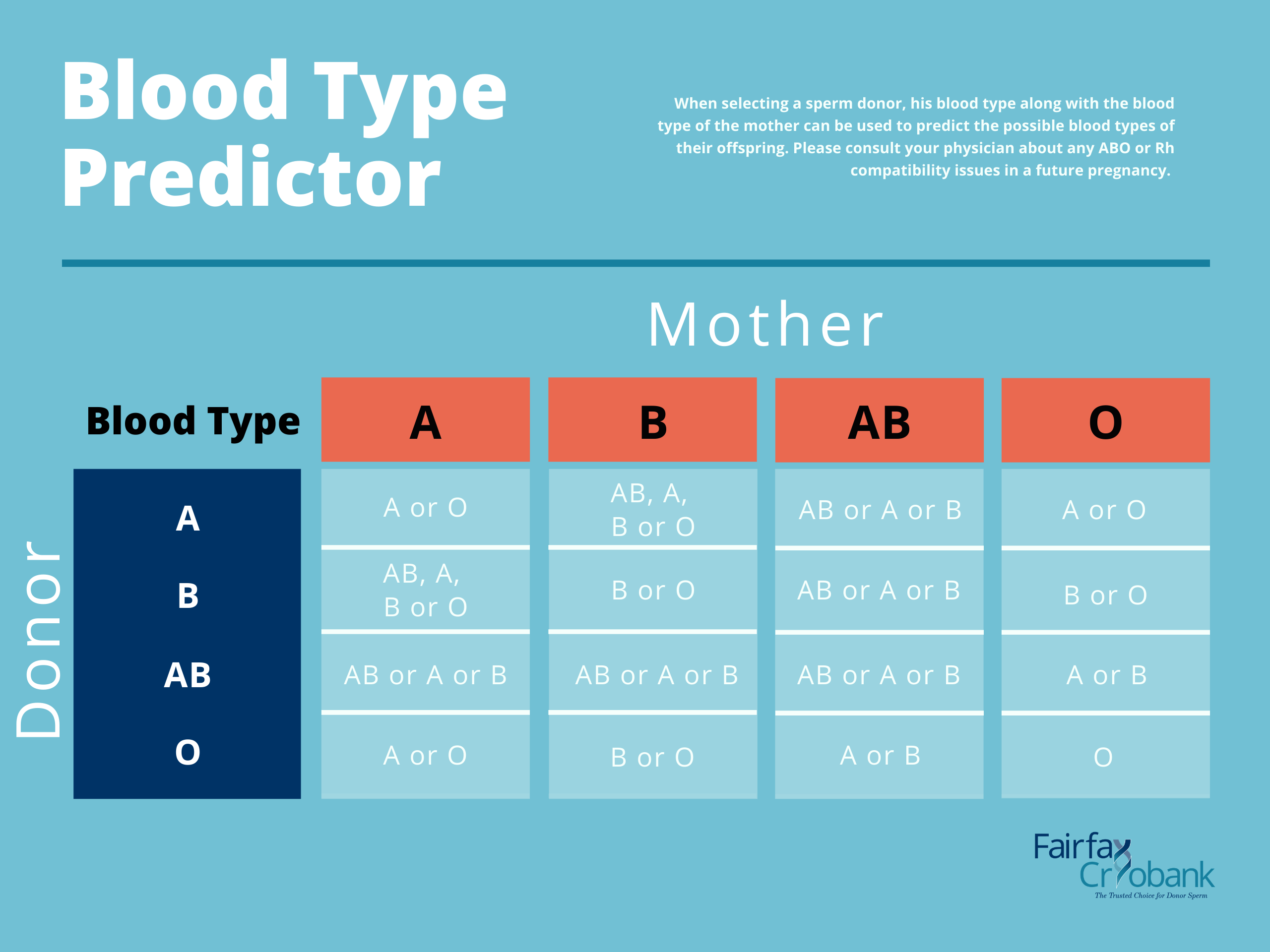How Do You Know What Your Blood Type Is? A Comprehensive Guide

- Understanding Blood Types: Why Knowing Your Blood Type Matters
- Common Methods to Determine Your Blood Type
- How to Use Home Blood Type Testing Kits
- Why Blood Donation Centers Are a Reliable Source for Blood Type Testing
- Consulting Your Healthcare Provider: A Professional Approach to Blood Type Testing
- Frequently Asked Questions About Blood Type Determination
Understanding Blood Types: Why Knowing Your Blood Type Matters
Understanding your blood type is essential for various reasons that extend beyond mere curiosity. Blood types are classified into four primary groups: A, B, AB, and O, with each group further categorized by the presence or absence of the Rh factor, leading to a total of eight distinct blood types (A+, A-, B+, B-, AB+, AB-, O+, O-). Knowing your blood type can have significant implications for health, medical treatment, and even compatibility with blood donors.
1. Medical Emergencies
In critical situations, such as surgeries or accidents, having your blood type readily available can be a lifesaver. Incompatible blood transfusions can lead to severe reactions, including hemolysis, which occurs when the immune system attacks the transfused blood cells. Being aware of your blood type ensures that medical professionals can provide the correct type of blood quickly, reducing the risk of complications.
2. Pregnancy Considerations
For expectant mothers, knowing both their own and their partner's blood types is crucial. If a mother is Rh-negative and the baby is Rh-positive, it can lead to Rh incompatibility, resulting in hemolytic disease of the newborn (HDN). This condition can cause severe health issues for the baby. Understanding these dynamics allows for proper prenatal care and interventions that can mitigate risks associated with blood type incompatibility.
3. Blood Donation and Transfusion
Your blood type also plays a vital role in blood donation and transfusion. Some blood types are rarer than others, making them more valuable in emergency situations. For instance, type O negative is often referred to as the universal donor type, as it can be given to patients of any blood type. By knowing your blood type, you can make informed decisions about donating blood, helping to ensure that hospitals have the right types available for those in need.
4. Genetic Insights
Understanding blood types can also provide insights into genetic inheritance. Blood type is determined by specific genes inherited from parents, which can give clues about ancestry and genetic predispositions to certain health conditions. By knowing your blood type, you may gain valuable information that could inform your health choices and lifestyle decisions.
In summary, knowing your blood type is not just a trivial piece of information; it carries significant implications for your health, safety, and well-being. Whether in emergency situations, during pregnancy, or when considering blood donation, being informed about your blood type is an essential aspect of personal health management.
Common Methods to Determine Your Blood Type
Determining your blood type is essential for various medical reasons, including blood transfusions, organ transplants, and pregnancy care. There are several reliable methods available for individuals seeking to identify their blood type. Each method varies in complexity, accuracy, and accessibility. Here, we will explore some of the most common methods used to determine blood type.
1. Blood Typing Kits
One of the most convenient ways to determine your blood type at home is through commercially available blood typing kits. These kits typically include blood typing sera that react with specific antigens found in different blood types. To use a blood typing kit, follow these steps:
- Collect a small sample of your blood using a sterile lancet.
- Apply the blood sample to the provided test cards or slides.
- Add the corresponding blood typing sera.
- Observe the reactions and compare them to the provided instructions to identify your blood type.
Blood typing kits are generally safe and provide quick results, making them a popular choice for many individuals.
2. Laboratory Testing
For a more accurate and comprehensive determination of your blood type, laboratory testing is the gold standard. Blood samples can be sent to a medical laboratory where trained professionals conduct tests to identify your blood type. This method typically involves:
- Collecting a blood sample via venipuncture.
- Performing agglutination tests using specific antisera to determine the presence of A, B, AB, or O antigens.
- Testing for the Rh factor to establish whether you are Rh-positive or Rh-negative.
Laboratory testing is highly reliable and is often used in medical settings for accurate blood typing, especially before surgeries or transfusions.
3. Genetic Testing
Another advanced method for determining your blood type is through genetic testing. This approach analyzes specific genes that dictate blood type characteristics. Genetic testing can be performed using a simple cheek swab or a blood sample. The process typically involves:
- Extracting DNA from the sample.
- Using polymerase chain reaction (PCR) techniques to amplify the DNA.
- Analyzing the genetic markers associated with blood type.
While genetic testing is not commonly used solely for blood typing due to its higher cost and complexity, it can provide additional information about your blood type, especially in cases where traditional methods yield inconclusive results.
4. Family History and Medical Records
Sometimes, individuals can determine their blood type by examining family history or previous medical records. Blood type is inherited, so knowing the blood types of parents or siblings can provide valuable clues. For example:
- If both parents are type A, the children could be type A or O.
- If one parent is type AB and the other is type O, the children could be type A or B.
Checking medical records is another option, as many individuals have their blood type documented during previous medical exams or procedures. While this method is not as definitive as others, it can serve as a useful starting point for those unsure of their blood type.
How to Use Home Blood Type Testing Kits
Using home blood type testing kits is a straightforward process that allows individuals to determine their blood type conveniently and privately. These kits typically come with all necessary materials and clear instructions to ensure accuracy. Here’s a step-by-step guide to help you navigate the testing process effectively.
Step-by-Step Instructions
To use a home blood type testing kit, follow these essential steps:
- Gather Materials: Ensure you have all the components included in the kit, which usually consists of a test card, blood collection device, and reagents.
- Prepare Your Workspace: Choose a clean, flat surface to conduct the test. It's advisable to use gloves to maintain hygiene and prevent contamination.
- Collect Your Blood Sample: Use the provided lancet to prick the side of your fingertip. Gently squeeze your finger to obtain a small drop of blood.
- Apply Blood to the Test Card: Place the drop of blood on the designated area of the test card as instructed in the kit.
- Add Reagents: Following the kit instructions, add the specified reagents to the blood sample. This step is crucial for identifying your blood type.
- Observe and Interpret Results: After waiting the recommended time, examine the test card for any changes. Compare the results with the provided reference guide to determine your blood type.
Tips for Accurate Results
To ensure the most accurate results when using a home blood type testing kit, consider the following tips:
- Follow Instructions Carefully: Each kit may have slightly different procedures; always adhere to the specific guidelines provided.
- Perform the Test at Room Temperature: Testing in a stable temperature environment can help maintain the effectiveness of the reagents.
- Check Expiration Dates: Ensure that all components of the kit are within their expiration dates to avoid compromised results.
Post-Test Considerations
Once you have determined your blood type, it is essential to keep the results documented. Store your test card in a safe place, especially if you need to share your blood type for medical reasons. If you have any doubts about the results or if they do not match your previous blood type records, consider consulting a healthcare professional for confirmation through a laboratory test.
Using home blood type testing kits can empower you with knowledge about your health. By following these guidelines, you can confidently conduct the test and understand your blood type without the need for a clinical visit.
Why Blood Donation Centers Are a Reliable Source for Blood Type Testing
Blood donation centers are widely recognized as reliable sources for blood type testing, and several factors contribute to this reputation. First and foremost, these centers are equipped with the latest technology and trained professionals who adhere to stringent protocols. This ensures that the testing process is both accurate and efficient, providing donors with precise information about their blood type.
Quality Assurance is a critical aspect of blood donation centers. These facilities are subject to rigorous regulatory standards set by health authorities. This includes regular inspections and certifications, which guarantee that the procedures followed for blood type testing are consistent and trustworthy. As a result, individuals can have confidence in the accuracy of their blood type results obtained at these centers.
Additionally, blood donation centers offer a comprehensive testing process. When individuals donate blood, their samples undergo a series of tests that not only determine blood type but also screen for various infectious diseases. This dual purpose enhances the reliability of the blood type testing, as donors receive detailed health information alongside their blood type results. This thorough approach is not typically found in other testing facilities, making donation centers a preferred choice for many.
Another advantage of using blood donation centers for blood type testing is the accessibility they provide. These centers are often located within communities and have established hours to accommodate donors. Many centers also offer online appointments, making it easier for individuals to access testing without the hassle of long wait times or complicated procedures. This convenience ensures that more people can find out their blood type accurately and efficiently.
Lastly, the experience of the staff at blood donation centers plays a significant role in their reliability. Trained phlebotomists and laboratory technicians possess the expertise necessary to handle blood samples with care and precision. Their knowledge not only enhances the accuracy of the blood type testing but also contributes to a positive experience for donors. Overall, the combination of advanced technology, strict quality control, comprehensive testing, accessibility, and experienced staff makes blood donation centers a dependable choice for blood type testing.
Consulting Your Healthcare Provider: A Professional Approach to Blood Type Testing
When considering blood type testing, consulting your healthcare provider is essential for ensuring accurate results and appropriate interpretation. Your provider can guide you through the testing process, explain its relevance to your health, and help you understand how your blood type can impact various medical decisions, such as transfusions, surgeries, and even dietary choices.
Why Consult a Healthcare Provider?
- Expertise: Healthcare providers possess the medical knowledge necessary to explain the implications of your blood type.
- Personalized Guidance: They can provide tailored advice based on your medical history and current health status.
- Understanding Risks: Your provider can help you comprehend any risks associated with blood type incompatibility in specific medical scenarios.
Before undergoing blood type testing, it’s important to have a thorough discussion with your healthcare provider about your reasons for testing. Whether you’re curious about your blood type for personal reasons, or if it’s required for a medical procedure, understanding the context is crucial. Your provider will discuss the different methods of testing available, such as blood samples taken in a laboratory or at-home testing kits, and help you choose the most suitable option for your situation.
Interpreting Results
Once you receive your blood type results, your healthcare provider will play a critical role in interpreting them. They can explain how your blood type may affect your health and guide you on any necessary follow-up actions. For instance, if you have a rare blood type, your provider might discuss blood donation options or the importance of keeping a record of your blood type for future medical needs.
In addition to discussing blood type in the context of transfusions and medical emergencies, your healthcare provider can also provide insights into how your blood type might relate to certain health conditions or dietary recommendations. Engaging in this dialogue ensures that you have a comprehensive understanding of your blood type and its potential implications, empowering you to make informed health decisions.
Frequently Asked Questions About Blood Type Determination
What is blood type determination?
Blood type determination is the process of identifying an individual's blood group based on the presence or absence of specific antigens and antibodies in the blood. The primary blood group systems are the ABO system and the Rh system. In the ABO system, blood can be classified as type A, B, AB, or O, while the Rh system categorizes blood as either Rh-positive or Rh-negative.
How is blood type determined?
Blood type can be determined through several methods, including:
- Blood tests: The most common method, where a sample of blood is mixed with antibodies that react with specific antigens.
- Genetic testing: This method analyzes the genes responsible for blood type inheritance.
- At-home blood typing kits: Available for personal use, these kits allow individuals to test their blood type safely at home.
Why is knowing your blood type important?
Understanding your blood type is crucial for several reasons:
- Transfusions: Knowing your blood type ensures compatibility during blood transfusions, reducing the risk of adverse reactions.
- Organ transplants: Blood type compatibility is essential for successful organ transplantation.
- Pregnancy: Incompatibility between a mother’s and fetus’s blood type can lead to complications, making it vital for expectant mothers to know their blood type.
Can blood type change over time?
In general, an individual's blood type remains constant throughout their life. However, rare instances of blood type changes can occur due to certain medical conditions or treatments, such as bone marrow transplants or significant blood loss. It is essential to retest blood type if there are changes in health status or after major medical procedures.

You liked this publication How Do You Know What Your Blood Type Is? A Comprehensive Guide See more here General.
